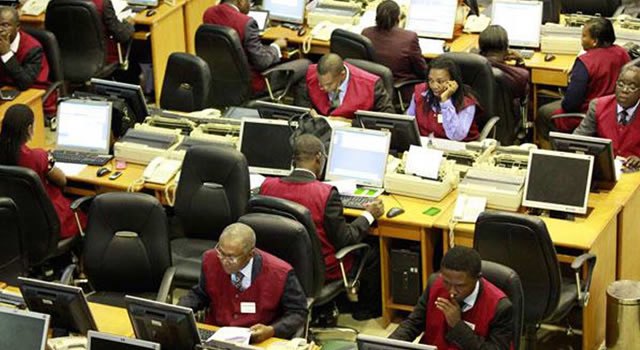The Nigerian Stock Exchange (NSE) is now ranked the worst performing equities market in the African continent as the Year-to-Date (YTD) return of the All-Share Index (ASI) worsened.
The YTD return is the amount of profit generated by an investment since the beginning of the current calendar year.
The latest development was occasioned by rising uncertainties in the Nigerian economy and the recent political developments in the country which undermined investors’ sentiments.
According to the weekly pan-African stock market monitor by a Lagos-based investment house, United Capital Plc., the NSE was the worst performing stock market in Africa having recorded a YTD return of -11.3 percent as at September 3, 2018.
The Nigerian bourse was trailed by the Regional Securities Exchange (BRVM) to emerge the second worst performing stock market in the continent after recording a YTD return of -11.1 percent.
The BRVM, which covers francophone nations in the West African sub-region like Benin, Guinea Bissau, Mali, Togo, Niger, Cote d’lvoire, Burkina Faso and Senegal, offers stock trading services from its headquarters in Abidjan, while its market offices are maintained in each country.
Read also: Nigeria Air to commence operations in December ‘all things being equal’ —NCAA
In 2017, the NSE was ranked among the top performing stock markets in Africa, and the exchange was ranked among the five top performers in the year after Argentina, Turkey, Hong Kong and the United States, according to S&P Dow Jones Indices. The NSE-ASI grew by 42.30 percent year-on-year in 2017.
Analysts at United Capital listed Morocco Stock Exchange as the third performing capital market with -7.1 percent YTD return.
The YTD return of the Kenya’s stock market, Nairobi Securities Exchange, dropped to -2.1 percent to emerged the fourth performing bourse in the continent, while South Africa’s stock market, Johannesburg Stock Exchange (JSE), went southwards to -1.3 percent.
Conversely, the Tunis Stock Exchange (TSE) led other exchanges in the continent as its ASI rose by 33.4 percent from the beginning of the year, while Zimbabwe Stock Exchange (ZSE) and Ghana Stock Exchange (GSE) trailed with YTD returns of 21.8 percent and 7.9 percent, respectively.Analysts at Cordros Capital advised investors in Nigeria’s stock market to trade cautiously in the short to medium term, noting that selloffs were likely to persists.The analysts attributed the poor performance at the NSE to negative sentiments of investors, particularly the foreign portfolio investors, as a result of “contagion effect of emerging market selloffs and political concerns ahead […]
